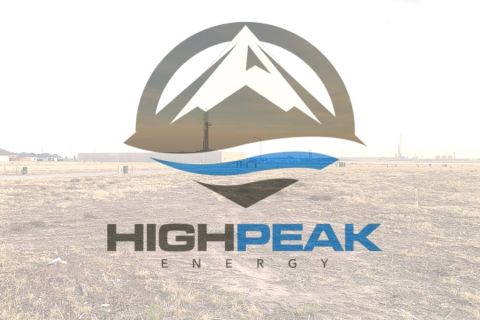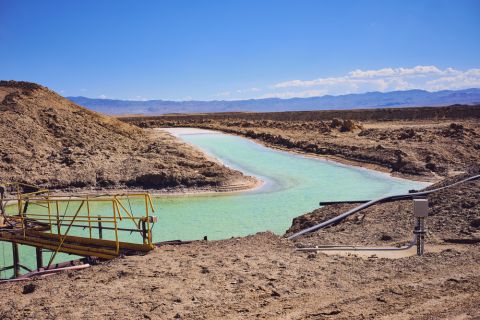
Drilling activity takes place in the Texas Panhandle. (Source: Jim Parkin/Shutterstock.com)
Texas Railroad Commissioners are digesting nearly 10 hours’ worth of testimony received during a public hearing April 14 as they consider whether to mandate a 20% oil production cut or let market forces play out without intervening.
A decision on the request, brought by Permian Basin players Pioneer Natural Resources Co. and Parsley Energy Inc., could come April 21 when the three-person regulatory panel meets again. Much is riding on the decision that would remove about 1 MMbbl/d of Texas production from the oversupplied global oil market amid a pandemic that has slowed demand.
Pioneer and Parsley among others say the move could help stabilize oil prices, which have fallen by more than 50% this year and prompted oil companies to cut spending and lay off workers. Some, however, believe proration in Texas alone may do more harm than good for the state, the biggest oil producer in the U.S.
Can moves by Texas improve global market conditions? What if other states fail to join Texas in mandating cuts? What about the small producers? Will doing nothing force them and some mid-sized producers to consolidate or die? If pursued, how would a proration program be carried out? If the demand isn’t there, what will proration in Texas actually accomplish? Aren’t market forces already working as producers are shutting in wells and cutting production?
These were only a handful of the issues discussed by commissioners and a divided Texas oil and gas industry.
“There’s a lot on our shoulders right now,” Chairman Wayne Christian said at the end of the hearing, calling on a higher power.
Petitioners’ Plea
It is the first time since 1973 that commissioners are being asked to consider proration, according to Pioneer CEO Scott Sheffield, who noted the dismal 5% to 6% average return on capital employed for the industry despite gaining market share and investing billions.
Oil prices, he added, have not moved up despite the historic OPEC+ deal reached recently.
“Last week, the Delaware was getting $3 and the Midland Basin was getting $10. The cuts were 10 million barrels a day. We need more,” Sheffield said. “Texas can lead in getting a real G20 cut of 5 million barrels a day. Not a fake 5 million barrels a day. Oklahoma looks like they’re moving forward on commission hearings. North Dakota is reducing flaring to reduce production.”
RELATED: Oklahoma Oil Regulators Set May Hearing on Oil Cuts
Meanwhile, storage is filling. Cushing is expected to be full within four to five weeks, Sheffield said. He recommended Texas reduce 1 MMbbl/d for May and brace for lower production again—perhaps 10%—in June.
“Demand is not going to become roaring back,” he said.
The decision by RRC commissioners will come down to whether they deem proration is needed to prevent waste, defined as oil produced in excess of reasonable market demand among other things.
Market conditions took a turn to the worst in March when the OPEC and the Russia-led OPEC+ pact fell apart, compounded by the global pandemic and subsequent travel restrictions.
The two reached an agreement over the weekend to cut output by 9.7 million barrels per day (bbl/d) in May and June, along with pledges from other oil-producing counties to lower production, to bring the total cut to about 19.5 MMbbl/d. The moves were welcomed, but proponents of proration are arguing for more cuts as storage fills with excess supply.
“A temporary proration of domestic production is pragmatic and urgent and shouldn’t even be an argument,” Parsley Energy CEO Matt Gallagher said.
“There is no reason to run full speed into infrastructure gridlock,” he added. “It’s the obligation of the regulatory bodies to prevent waste. The numbers are indisputable.”
Free Market Backers
Oil and gas companies in Texas and elsewhere have already been making deep spending cuts.
Those opposed to proration say the market is working and no intervention is needed.
Lee Tillman, president and CEO of Marathon Oil, is among them.
“We do not believe proration in Texas will have the desired effect or any meaningful effect on global oversupply and would only serve to disadvantage Texans,” Tillman told commissioners.
Texas operators are already shutting in the least profitable wells, he said, adding some companies will succeed while others will fail during times of supply and demand imbalances.
“What will be the threshold to toss aside free market principles in the future?” Tillman asked. “Opening the Pandora’s Box of proration, especially when it cannot be expected to have any meaningful effect on global oversupply, would put it in play as a powerful tool to be used to restrain production for reasons other than preventing waste.”
U.S. shale production is already expected to fall by 400,000 bbl/d from January to May this year, based on U.S. Energy Information Administration’s estimates. Exit-to-exit volumes for second-quarter 2019 to fourth-quarter 2020 could fall by 1.8 MMbbl/d for total U.S. oil production, Tillman said, but those numbers are likely to be higher.
“For us, the free markets are working,” he continued. “Decisions are being taken on both economic and commercial basis, and that’s the way markets should work.”
Unlike Pioneer and Parsley, many opponents of proration have operations outside of Texas and production curtailments aren’t limited to the Lone Star State.
“We must consider which barrels across our multibasin portfolio have the highest cash contribution per barrel, which we define as revenue minus variable cash cost,” Tillman said.
For Marathon, it’s the South Texas Eagle Ford. Those barrels, he said, would be last up for curtailment consideration.
Doug Suttles, CEO of Ovintiv Inc., told commissioners about some of the challenges Alberta faced a few years ago when it decided to control how much heavy oil was produced. The company, formerly called Encana, opposes proration.
Producers could end up performing poorer because they “can’t control which barrel they believe is most economic to produce versus which barrel they should actually shut it.” He added Alberta has found it difficult unwinding the program.
Spreading Pain
Then, there are the small E&Ps like Texland Petroleum, which is struggling to get pipeline access.
Jim Wilkes, president of privately-held Texland that produces about 7,000 bbl/d in the Permian Basin, said the company has managed to sell its oil during previous downturns to maintain operations close to break-even levels. This time, with COVID-19, it’s different.
“Curtailment of production is already occurring in the field because purchasers are canceling our crude oil contracts with 30-day notice provisions,” Wilkes said. If the company can’t secure market, “we will be forced to severely curtail a number of our fields regardless of economics on May 1.”
Kirk Edwards, president of Latigo Petroleum, said the industry needs commissioners to “figure out a way for everyone to cut back proportionally and feel the same pain” until demand picks back up.
He suggested commissioners at minimum prorate the 750 MMcf/d of gas flared in the Permian Basin and work with Texas legislators to implore in-state refiners to buy domestic oil first.
More than 55 people were scheduled to speak during the hearing on April 14.
“It’s a lot to digest,” Commissioner Christi Craddick said, noting she’d taken about 20 pages of notes.
It was the first time Commissioner Ryan Sitton recalled the commission discussing an issue in such detail. “We’re in unprecedented times,” he said.
Recommended Reading
CorEnergy Infrastructure to Reorganize in Pre-packaged Bankruptcy
2024-02-26 - CorEnergy, coming off a January sale of its MoGas and Omega pipeline and gathering systems, filed for bankruptcy protect after reaching an agreement with most of its debtors.
Baytex Prices Upsized Private Placement of Senior Notes
2024-03-15 - Baytex intends to use the proceeds to pay a portion of outstanding debt on its credit facilities and general corporate purposes.
Jerry Jones Invests Another $100MM in Comstock Resources
2024-03-20 - Dallas Cowboys owner and Comstock Resources majority shareholder Jerry Jones is investing another $100 million in the company.
HighPeak Energy Authorizes First Share Buyback Since Founding
2024-02-06 - Along with a $75 million share repurchase program, Midland Basin operator HighPeak Energy’s board also increased its quarterly dividend.
M4E Lithium Closes Funding for Brazilian Lithium Exploration
2024-03-15 - M4E’s financing package includes an equity investment, a royalty purchase and an option for a strategic offtake agreement.






